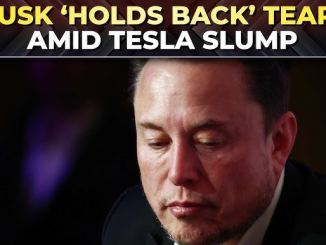
Tesla’s Market Decline: A Turning Point or a Temporary Setback?
Tesla, a company once seen as the indisputable leader in the electric vehicle (EV) market, has recently faced a severe downturn. Since December 17th, Tesla has lost a staggering $945.16 billion in market value, plummeting from its peak capitalization of $1.678 trillion to approximately $732.84 billion — a sharp 56% decline.
This dramatic drop can be attributed to a confluence of factors. At the forefront is Elon Musk’s growing political involvement, which has sparked controversy, led to boycotts, and damaged the brand’s once-pristine reputation. As Musk’s statements have become more divisive, a portion of Tesla’s customer base appears to be reconsidering their loyalty to the brand.
Sales figures also reflect the company’s current struggles. In crucial markets like China, where Tesla once experienced impressive growth, sales have plummeted by more than 50%. The company now faces fierce competition from both established automakers and emerging EV companies, many of which are offering comparable technology at more accessible price points.
Amid these challenges, questions arise: Is this the end of Tesla’s impressive growth, or is there still potential for a turnaround? While some analysts believe the company’s innovative edge and strong brand recognition could facilitate recovery, others caution that the market dynamics have shifted, and reclaiming lost ground may not be as straightforward.
Ultimately, Tesla’s future will likely depend on its ability to adapt — navigating geopolitical tensions, refining its public image, and maintaining its position as a leader in automotive innovation. Whether this marks a new chapter of growth or a prolonged period of struggle remains to be seen.


